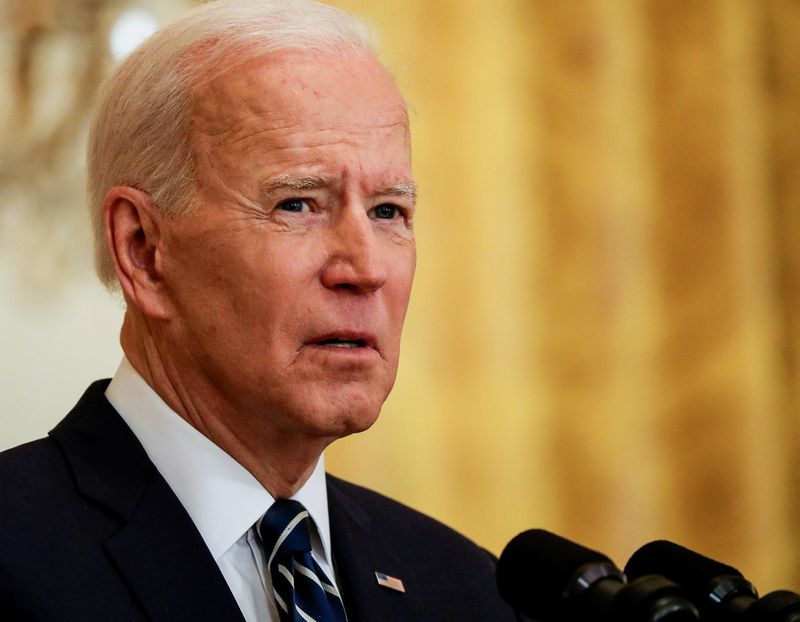By Karen Pierog
CHICAGO (Reuters) - Massive fiscal aid, potentially huge infrastructure spending and the prospect of federal tax increases under President Joe Biden's administration will boost the U.S. municipal bond market in coming years, a BofA Global Research report said on Friday.
The market is already cheering the $1.9 trillion fiscal stimulus plan Biden signed into law on March 11, with $350 billion heading to states and local governments to help with lost revenue and higher costs due to the COVID-19 pandemic.
"The American Rescue Plan, along with President Biden's forthcoming infrastructure plan, forms the basis of the golden decade that we expect for muni market issuers through 2030," the BofA report said.
Aid was a factor in decisions this month by S&P Global (NYSE:SPGI) Ratings and Moody's (NYSE:MCO) Investors Service to revise the credit outlook to stable from negative for the state and local government sectors.
The Democratic president is scheduled to unveil his "Build Back Better" plan next week that could have involve spending as much as $4 trillion on traditional infrastructure, as well as climate and domestic policy initiatives.
"Added to this is the potential benefit from tax changes that, on balance, should increase demand for munis," BofA said.
It pointed to the possibility of raising the 37% top personal tax rate back to 39.6%, limiting deductions for the highest earners to 28% and increasing the corporate tax rate to 28% from 21% to help pay for the additional federal spending.
Debt sold by states, cities, and other issuers in the $3.9 trillion municipal market is typically exempt from federal taxation.

A Barclays (LON:BARC) report on Friday said higher tax rates could incentivize banks and property and casualty insurance companies, which decreased their municipal holdings in the wake of the 2017 Tax Cuts and Jobs Act to boost their municipal buying.